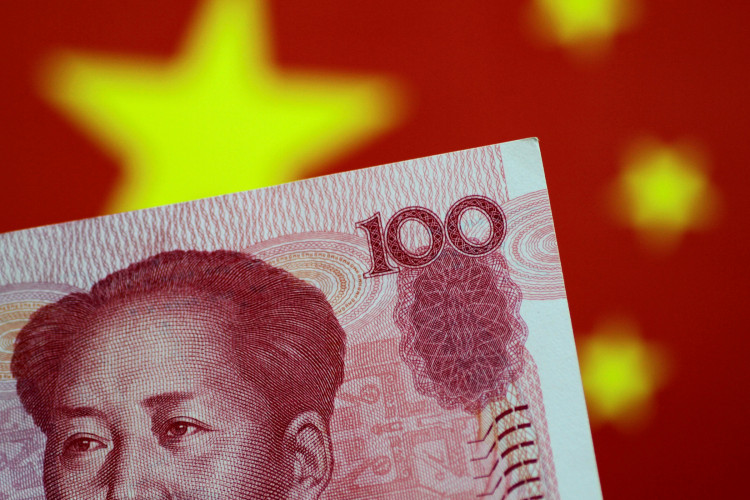Chinese authorities have recently announced one of the most significant changes to the national budget in years. This includes the issuance of 1 trillion yuan ($137 billion) in government bonds. However, the primary focus of this substantial amount is the reconstruction of areas severely affected by natural disasters, such as the historic floods witnessed this summer, and for catastrophe prevention.
Despite these efforts, foreign investors have been offloading Chinese stocks at an unprecedented rate. The outflow from China's A-share market, which consists of yuan-denominated shares of mainland China firms trading on the Shanghai and Shenzhen stock exchanges, has reached a historic high. Between August 7 and October 19, the cumulative outflow via Stock Connect, a trading link established in 2014 allowing international investors access to shares in mainland China via Hong Kong, hit a staggering $22.1 billion.
This massive exodus has seen the CSI 300 Index, which tracks the top 300 stocks on the Shanghai and Shenzhen stock exchanges, plummet to its lowest level since February 2019. Although there was a slight rebound following the news of China's legislature approving the bonds and the sovereign wealth fund's purchase to boost sagging shares, the index remains down by nearly 10% this year, making it one of the world's worst performers.
Experts attribute this declining appetite for Chinese shares to two primary factors: China's economic slowdown and the perceived inadequate response from the authorities. Brock Silvers, Chief Investment Officer at private equity firm Kaiyuan Capital, opined, "Real estate and debt crises are deep structural problems for which there are no easy technocratic fixes, yet authorities seem unready to take necessary steps."
Furthermore, Beijing's behavior towards foreign businesses, which some describe as "increasingly, opaque, arbitrary, and confrontational," has spooked investors. The recent investigation into Foxconn, a Taiwanese company best known for manufacturing Apple's iPhones, has further unsettled the global investment community.
Tensions between China and the US have also played a significant role in this stock market exodus. Global asset managers and venture capital firms have faced increasing scrutiny from the US over their investments in China. In August, President Joe Biden signed an executive order limiting US investments in advanced technology industries in China, leading to significant capital outflows from China.
Despite these challenges, Beijing has been proactive in its attempts to bolster the slumping stock market and stimulate economic growth. The National People's Congress recently approved the issuance of new bonds in the fourth quarter to fund rebuilding efforts after natural disasters and other infrastructure projects. Additionally, Central Huijin Investment, an arm of China's sovereign wealth fund, has made significant purchases in the stock market to stabilize shares.
However, some analysts believe that these measures might be too little, too late. Derek Scissors, a senior fellow at the American Enterprise Institute, remarked, "Temporary measures, such as intervention in stocks or policy stimulus, don't change sentiment. If anything, they just convince people now is the best time to exit, before the intervention loses its impact."
In conclusion, while China remains a global economic powerhouse, the recent events highlight the challenges it faces in maintaining investor confidence and ensuring sustainable growth. As the world watches closely, Beijing's next moves will be crucial in determining the future trajectory of its economy and stock market.





